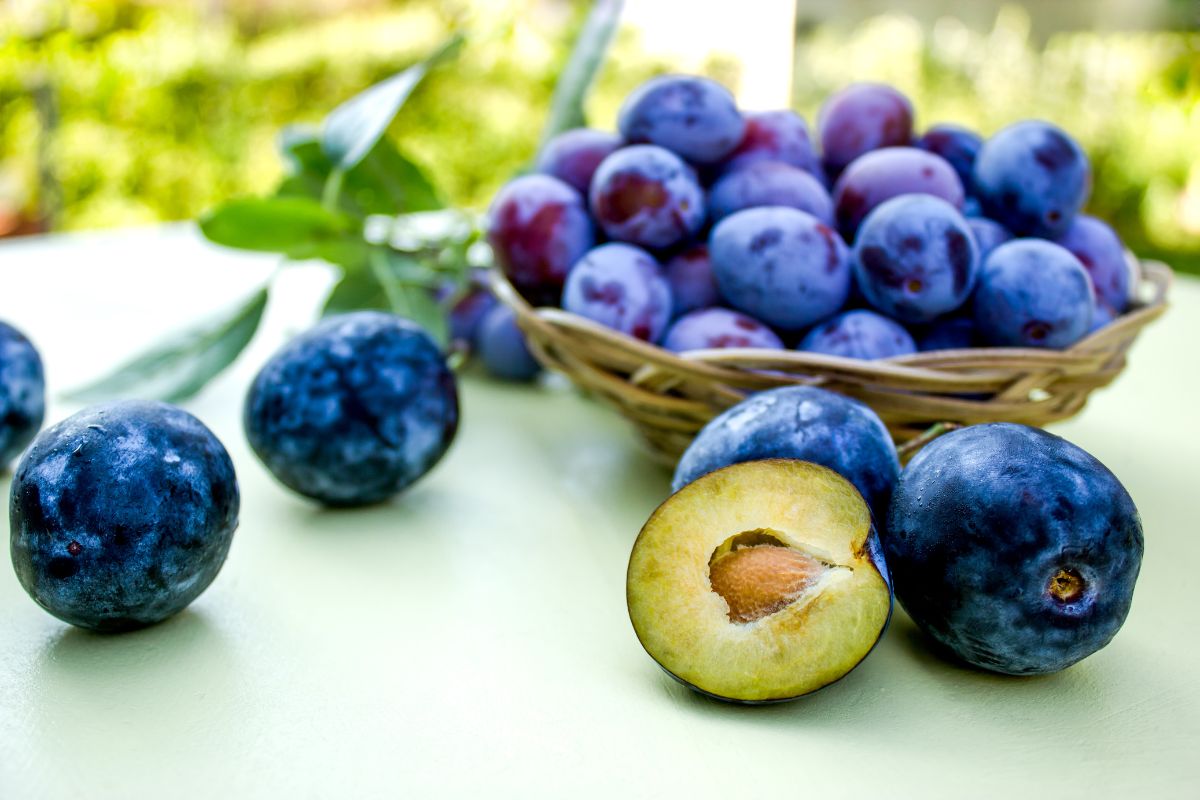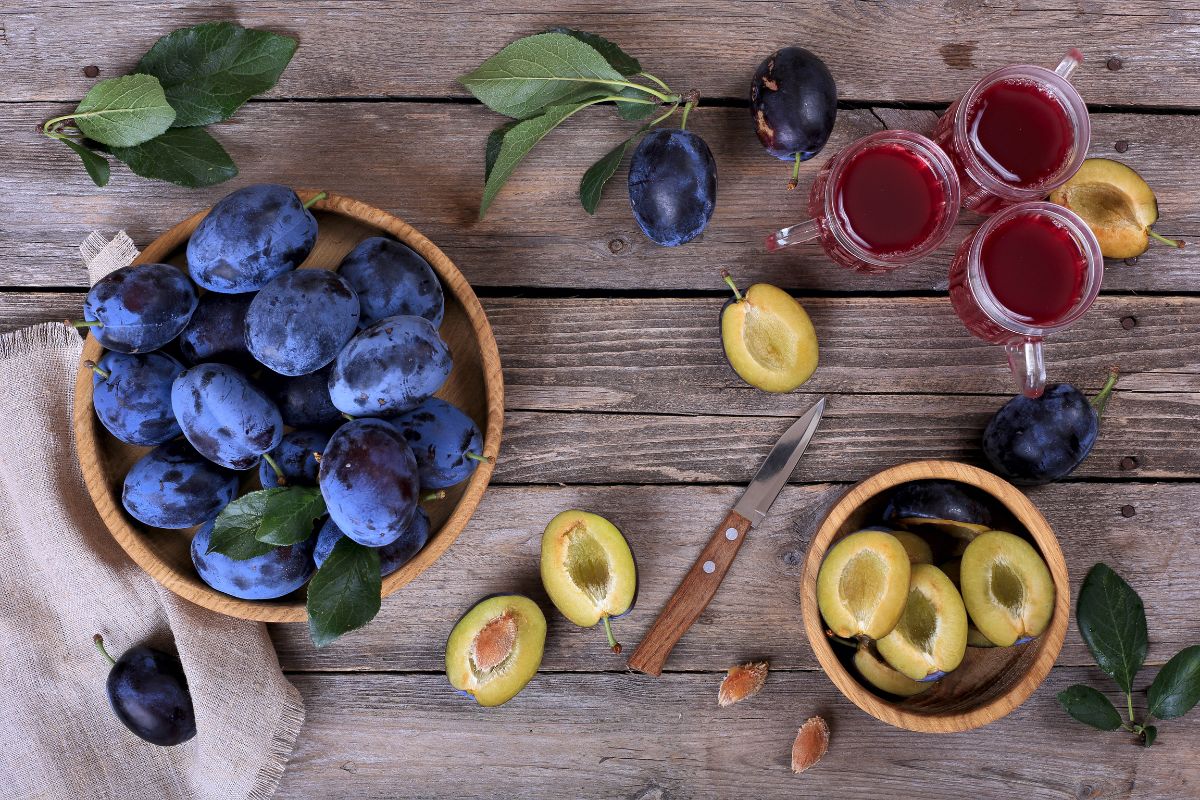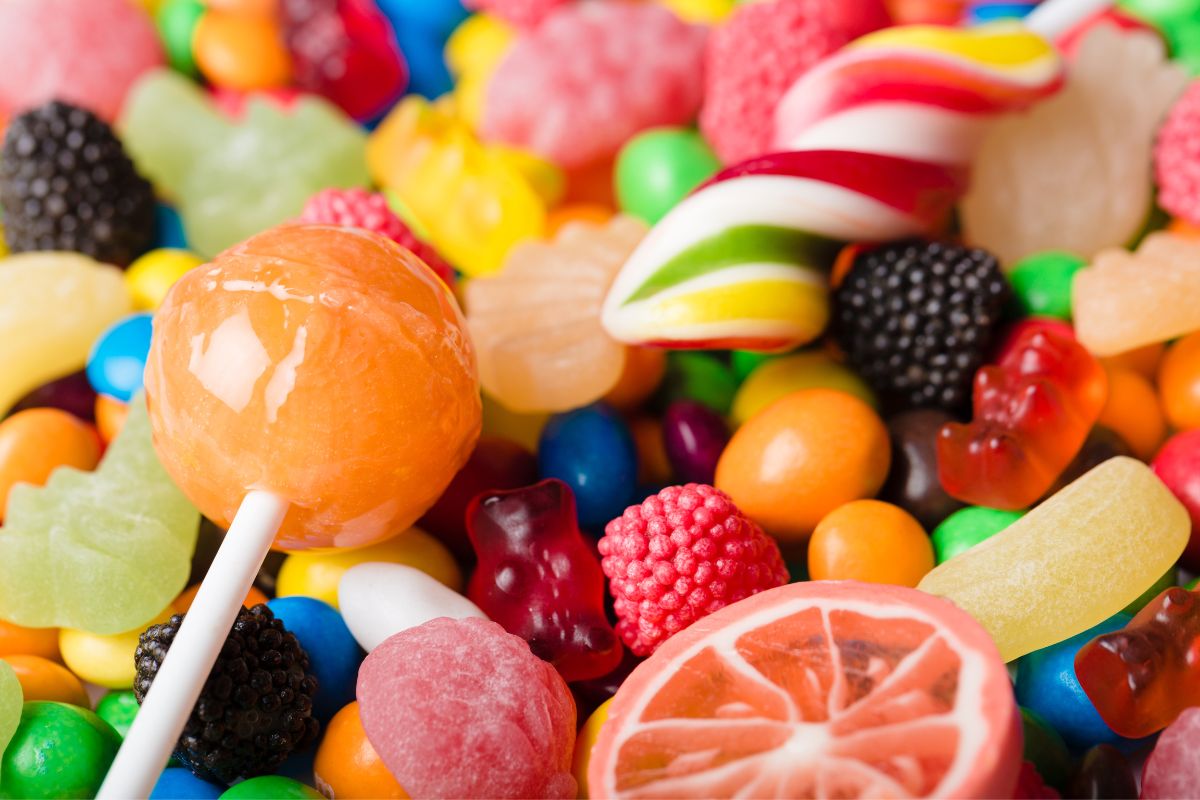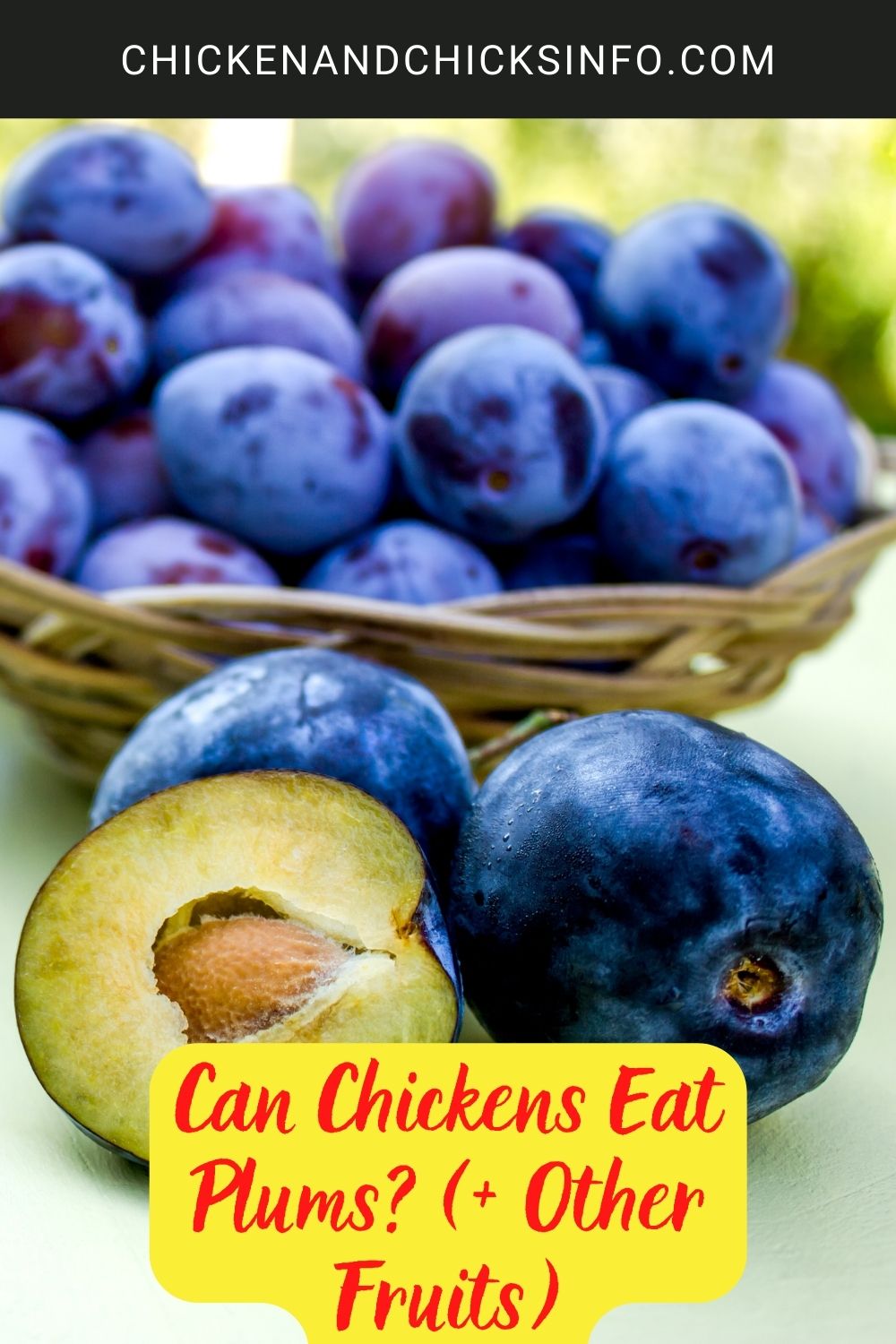Can chickens eat plums? Is the skin and pits/stones also safe for them?

If you’re interested in feeding your chickens some scraps to add some variety to their diet. Or, maybe you’re lucky enough to have a plum tree growing in your garden - you’re right to check it’s safe first.
The good news is that plums are safe for chickens.
Not only are they safe, in my experience, and from what I can tell from speaking with other backyard chicken owners - they love them!
Interested to know more? Here’s everything you need to know about feeding plums to your chooks and some of the other foods they can and can’t eat:
Jump to:
Are Plums Healthy for Chickens?
First of all, you have to be aware that at least 90% of a chicken’s diet should come from a quality commercial feed.
Chicken feeds are specially formulated to meet all of their dietary needs. Which is especially important for your flock to maintain optimal health, as well as when they’re laying eggs or molting.
That leaves some room to give your flock some “treats” and fruits like plums are an excellent source of vitamins and minerals to complement their diet.
Plums, in particular, contain a wide range of vitamins, minerals, and antioxidants, and some other nutrients.
They’re a great choice for chickens. Plus, they’re easy to cut and prepare, just as easy for them to digest, and usually readily available all year around.
Related - Can chickens eat prunes? (Prunes are dried plums).
Are Plum Pits/Seeds Toxic to Chickens?

You’ve probably heard that the seeds, pits, or stones of a lot of fruits are potentially toxic to small animals.
And to us to a lesser degree.
This is because the pits of fruits like plums, peaches, cherries, and some other fruits contain a compound called amygdalin. Which, when ingested breaks down into hydrogen cyanide.
Cyanide is a word we’re all familiar with. It’s a poison that’s toxic to us and animals. The reality is, however, that the level of cyanide in most fruits is not enough to cause any noticeable harm to us or chickens.
So, if you’ve been throwing the pits in along with the fruit of a plum, or any other fruits for that matter, don’t panic.
That said, now you know this, don’t give them pits in the future. It’s always best to err on the side of caution.
It’s not difficult to discard the pits, I always advise to avoid giving them to any animals.
Other Fruits Chickens Can Eat
My flock are fruit hungry monsters. Here are some of their favorites, all of which are safe and healthy for chickens:
Most berries - Most berries are fine, I know raspberries, strawberries, and mulberries, in particular, don’t last a minute if my flock get their beaks into them.
Grapes - Sometimes I see people saying grapes are bad for chooks. There’s no evidence to suggest this is true. For the same reasons as plums, you should remove the seeds or give them seedless.
Apples - Another fruit that needs to be de-pipped and de-cored, but a firm favorite among chickens all over the world.
Related - Read how I feed crab apples to my flock here.
Bananas - This is a soft fruit that’s super easy to feed to chicks. You can even hang them up for some added entertainment.
Melons - Just slice a melon in half (if you’re willing to give it all up) and your flock will be more than happy to peck the insides out.
Some Foods Chickens Should Not Eat

There are more fruits and vegetables that are good for chickens than those that aren’t. Still, you have to be aware of potentially toxic or harmful foods.
Here are some of the worst offenders to keep well away from your flock:
Chocolate, candy, sweet treats - Chocolate contains some compounds that are toxic to chickens. Then sugary treats like candy just aren’t good for them in any way.
Raw beans - Even in small amounts, raw beans contain harmful toxins that can cause some serious health issues.
Coffee and tea - Caffeine is bad for chickens. While they may never get to experience a cup of tea or coffee, some people do use it as composting material.
Vegetables in the nightshade family - Most plants that belong to the nightshade family; potatoes, tomatoes, peppers, etc. produce a toxin to harm insects and pests trying to eat them.
Parts of the plants are safe, typically the main fruits such as red tomatoes and white potatoes. But it’s something to be aware of when dealing with this family of plants.
In Summary
Chickens can eat plums, yes - in fact, there are some good nutritional benefits for them eating plums on occasion.
Keep in mind that fruits, vegetables, and other table scraps should be treated as treats. This is especially important in regard to plums as they’re one of the fruits higher in sugar content.
As long as 90% of their diet comes from a quality commercial feed, you can have some fun treating your flock to some of their favorite foods.
Resources
Are stone fruit seeds poisonous? - GoodHouseKeeping.com
7 Health Benefits of Plums and Prunes - Healthline.com





